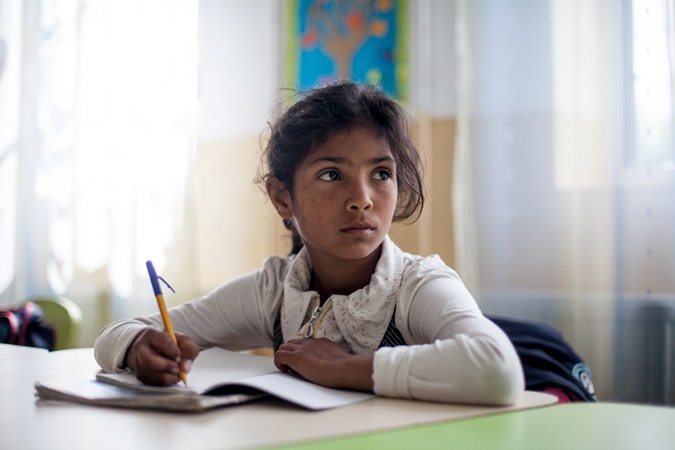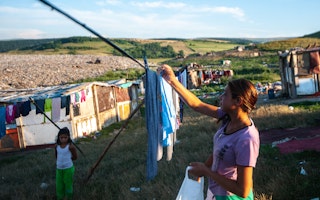Three Ways to Build Upon Roma Progress
By George Soros

Some years ago, I visited a village in Romania, and saw the seeds of a crisis at hand. The area was home to the Roma, an ethnic minority of 10 to 12 million people scattered across Europe who face discrimination and persecution on a daily basis. In this village, the Roma were scavenging on a garbage dump. Without help, I realized, sons would join their fathers on the dump; daughters could only hope to be married off. There was no clear way to escape their fate.
Today, the children of the Roma have a chance. Thanks to the work of the Roma Education Fund—which I founded, along with the World Bank—and the European Union’s Structural Funds, the sons and daughters are now doing really well in school. Another pilot program, one that I hope will become permanent, will place Roma children from vocational schools into internships with multinational corporations.
This is a bright spot on what has been a rather bleak horizon. My foundations started working on the Roma problem in Hungary and other Communist countries 30 years ago. In those countries, the living conditions of the Roma have actually deteriorated since the Berlin Wall came down. So while progress has been made, there is much more to be done.
I should like to commend the European Commission and the European Parliament for recognizing the problems the Roma face, and for developing a policy in response. Were it not for these efforts, their plight would be much worse.
Ten years ago, I brought together nine Eastern European governments to launch what we called the Decade of Roma Inclusion. The decade is almost over, but I am happy to report that the European Commission is interested in continuing the program. This effort brings together member and non-member states and offers independent monitoring of government programs. There have been successes, which I hope will catch on, and spread further.
We have developed programs for Roma integration that work. If these programs could be scaled up with the help of additional EU Structural Funds, the Roma could, within a generation or two, be as well-integrated in Europe as African-Americans are in the U.S. today. While we’ve made great strides in educating the Roma children, their population is expanding faster than the programs. Further EU funding could help expand access to the classroom.
We also need to make sure that those who do get a good education don’t forget where they came from. The small cohort of well-educated Roma can assimilate, and escape the hostile stereotyping that face their brothers and sisters. By embracing their heritage, and taking pride in their identity, the few can help pave a path for the many. We are working with the Council of Europe to establish a European Roma Institute that will preserve and rebuild Roma culture. This will encourage the Roma to embrace their heritage and retain their identity. European Commission President Jose Manuel Barroso has endorsed this initiative, and we are grateful for his support.
Finally, we need to make sure that governments spend the money allocated for the Roma wisely. At present, many countries with large Roma populations have used only a fraction of the funds provided them. The rest of the money sits untouched. Perhaps the Commission could set up a special fund, administered from Brussels, to help facilitate cash flow to local service providers in the countries concerned.
None of this is easy, I know. But if we can better use the resources at hand, and increase the investment in programs with a proven track record, we can improve on the current condition of the Roma. We can create hope, where once there was none.
Based on remarks delivered at the EU Roma Summit April 4 in Brussels, Belgium.
George Soros is founder and chair of the Open Society Foundations.


